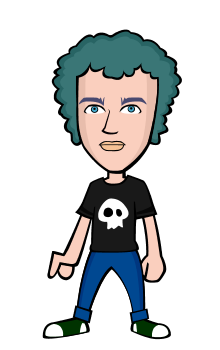KABUL: Barely 10 months after retiring as president, Hamid Karzai remains a formidable presence in Afghan politics, with critics accusing him of Machiavellian string-pulling behind the scenes which is imperilling political stability.
The two-term leader transferred power to technocrat-politician Ashraf Ghani last September in Afghanistan's first-ever democratic transition, leaving behind a legacy of troubled ties with Western backers, worsening security and a corruption-ridden economy.
But the “retired” leader never really exited the political scene, setting up an office near the presidential palace, directing scathing barbs at the new government struggling to clean up his messy legacy and creating what palace officials describe as a parallel power centre.
Widely labelled a political “madari”, or juggler, Karzai is said to wield a shadowy influence deep within the palace, weaning away high-ranking detractors disenchanted with Ghani's brusque style of governance while casting himself as a political unifier.
“If the question is whether Ghani acknowledges (Karzai's) interference, the answer is yes. Is the pressure felt? Yes,” a palace official told AFP, requesting anonymity.
“He (Karzai) should consider himself lucky. His house, his security, even his cook are paid for by the government. Does he not appreciate the meaning of hospitality? “
Read More: Hamid Karzai seen as growing threat to Afghanistan’s political stability
Karzai has publicly maintained that he fully supports the government and harbours no ambition of returning to power.
“He definitely has no intention of running for president in elections slated for 2019," said Aimal Faizi, a long-time aide to Karzai.
He reiterated that Karzai does not plan to return to politics, but he will not lie dormant.
Sporting his trademark green-and-purple striped chapan, a hand-woven coat, and a karakul hat, Karzai recently rubbed shoulders with Russian President Vladimir Putin in Moscow, with whom he discussed the emerging threat of the Islamic State group in Afghanistan.
“As an Afghan and an influential politician, Karzai cannot ignore what is happening in his country,” Faizi told AFP.
But a Western diplomat in Kabul charged that Karzai was creating a “shadow government” and actively plotting to destabilise the establishment with the intention of bringing it down.
If that happened, Karzai would step forward to fill the political vacuum by shepherding the interim government and projecting himself as a national saviour, said the diplomat, who did not wish to be named.
Karzai vs Ghani
Karzai, then aged only 44, became a global star when he was selected to lead Afghanistan after the ousting of the repressive 1996-2001 Taliban regime.
Charismatic, stylish and fluent in English, Karzai wowed world leaders and convinced the United States that he was the perfect partner to tackle Islamist militancy after the 9/11 attacks.
Read More: Karzai welcomes US remarks on Taliban
But such sentiments evaporated as the insurgency raged on for a decade, casualties mounted, billions of aid dollars were spent to limited effect, and Karzai launched increasingly bitter criticism of the US intervention.
He is accused of building a vast patronage network that exacerbated corruption, with his successor inheriting a seemingly dysfunctional state with empty coffers.
Nevertheless, Karzai's public stature has grown at a time when Ghani has projected himself as the very antithesis of his predecessor.
He signed a long-delayed security pact with the United States that was blocked by Karzai, reopened high-profile corruption cases and, most controversially, pursued rapprochement with long-time nemesis Pakistan.
Karzai, well known for his anti-Pakistan tirades, has warned strongly against Afghanistan's tilt towards Islamabad ─ often accused of playing a “double game” and covertly nurturing the Taliban.
But the shift now appears to be bearing fruit, with the first official face-to-face talks taking place last week between militants and the Afghan government in Pakistan.
Karzai and Ghani themselves met earlier this week in a bid to resolve their differences, local media reported ─ but details of the meeting remain sketchy.
And Ghani, an American-educated former World Bank official, lacks the charisma and mass appeal enjoyed by Karzai, who is from the ethnic Pashtun majority and deeply popular in his southern stronghold of Kandahar.
His father was murdered by the Taliban in 1999 and Karzai succeeded him as head of the Pashtun Popalzai tribe.
“Karzai's life has revolved around politics since he barely learned to walk,” said Bette Dam, author of 'A Man and A Motorcycle: How Hamid Karzai Came to Power'.
Karzai is cleverly “capitalising on widespread disenchantment” among Afghans, who are wary of growing insecurity and deeply suspicious of Pakistan despite the newfound bonhomie, said Kabul-based political analyst




